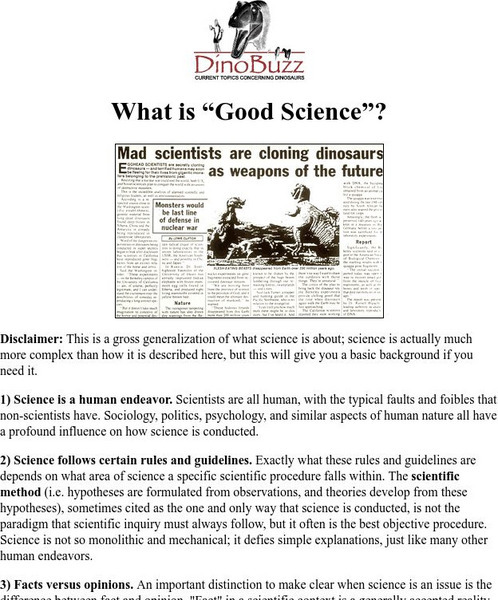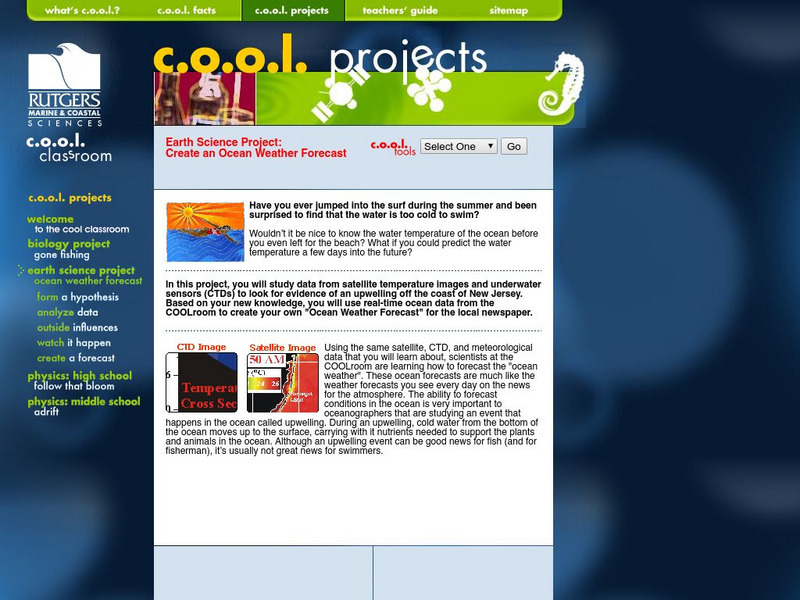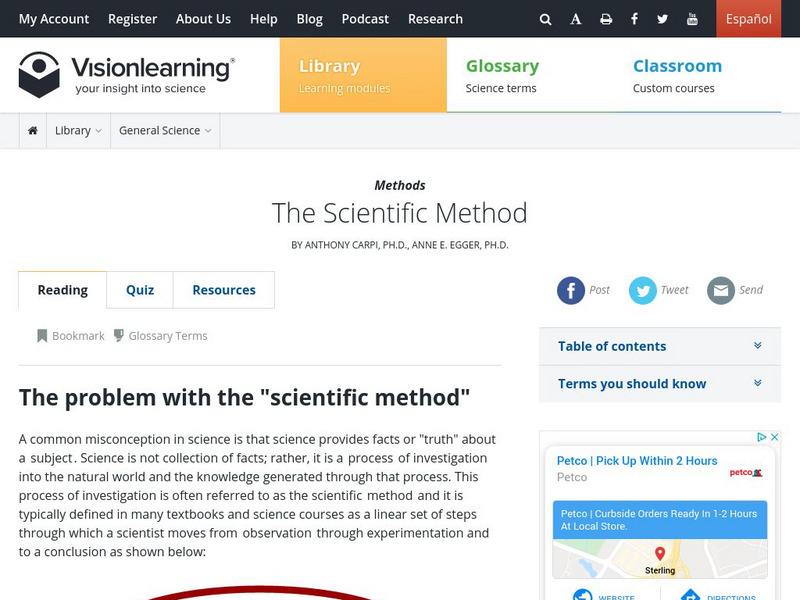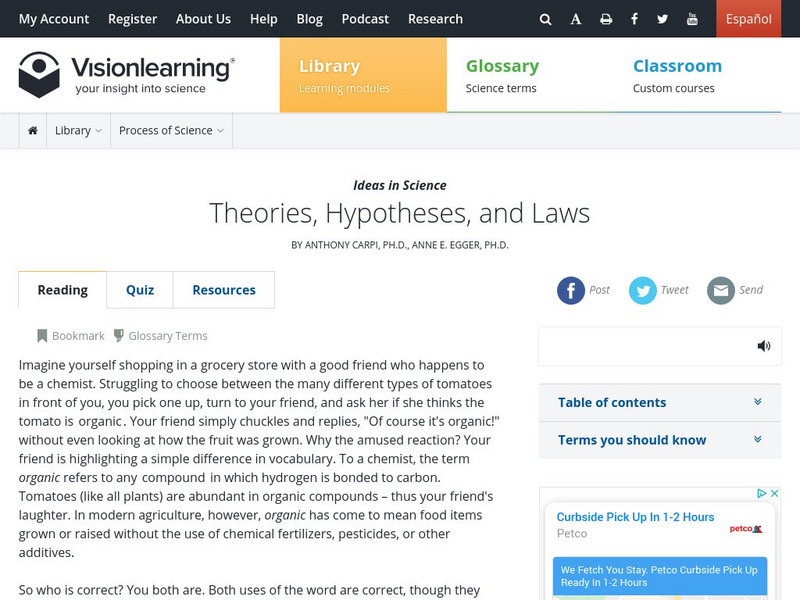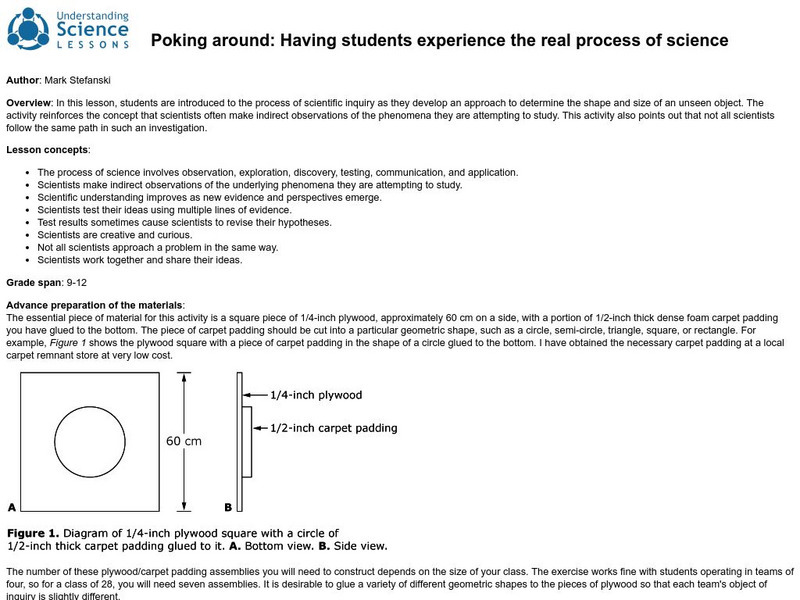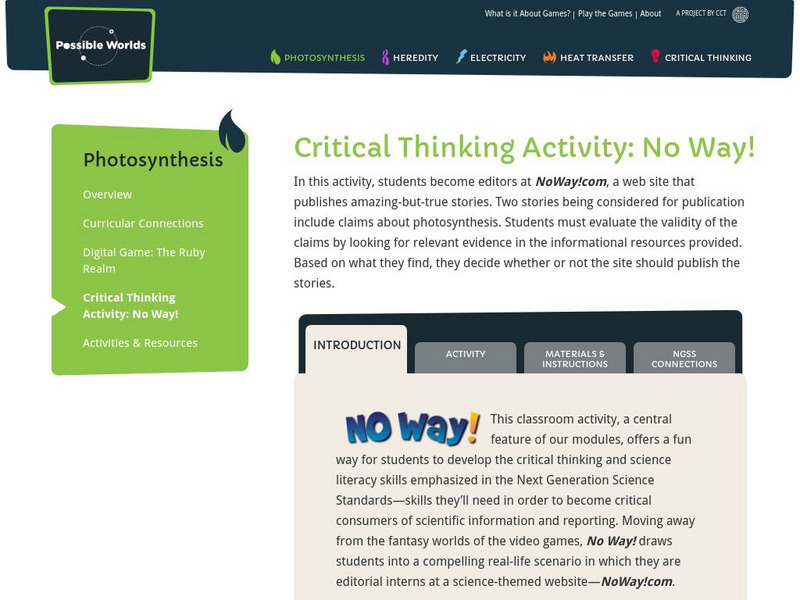University of California
Ucmp: What Is "Good Science"?
A very good explanation of the scientific process and the differences between science and non-science. This is a concise and clearly written description.
Other
Rutgers: c.o.o.l. Class: Earth Science Project: Create an Ocean Weather Forecast
Want to learn how to forecast ocean weather? This c.o.o.l. project lists each of the steps in the scientific process, and has you work through each in this earth science based project.
Vision Learning
Visionlearning: The Process of Science
An introduction to scientific process and thinking like a scientist.
Smithsonian Institution
Smithsonian Education: Minerals, Crystals, and Gems
Through this series of three lessons, students will gain an understanding of the basics of mineral science. In their investigation they will also work through the scientific process as they practice their observation skills, form...
Lumen Learning
Lumen: Boundless Biology: The Science of Biology
Explore the concept of scientific reasoning, and compare and contrast hypothesis and theories while understanding the difference between deductive and inductive thinking.
Vision Learning
Visionlearning: General Science: The Scientific Method
Instructional module focusing on the scientific method as a process of investigation into the natural world rather than a linear collection of facts. Site also includes an interactive practice quiz and links relating to the topic.
Vision Learning
Visionlearning: Culture of Science: Nature of Scientific Knowledge
Explore what science really is with this explanation of scientific knowledge.
Vision Learning
Visionlearning: Ideas in Science: Theories, Hypotheses, and Laws
Learning module looking at scientific explanations. Discussion covers theories and how they develop, some well-known theories and their origins, and how theories are revised and refined. Also, covers hypotheses and laws. The three...
University of Southern California
California State Science Fair: What Makes a Good Science Fair Project?
A good first step to read. This set of recommendations or advice comes from the California State Science Fair Committee. Read carefully the first three paragraphs and the "Students are advised" paragraph.
University of California
Uc Museum of Paleontology: Misconceptions About Science
This page addresses the several topics students may have misconceptions about in science. Page addresses topics such as the limits of science to misinterpretations of the scientific process in a FAQ type of responses.
University of California
University of California at Berkeley: Understanding Science: Poking Around
Learners work in groups to develop an understanding of the size and shape of an object hidden beneath a plywood board, asking questions, testing their reasoning, and drawing conclusions, as scientists do. Students are never permitted to...
Stanford University
Stanford Encyclopedia of Philosophy: Scientific Discovery
Scientific discovery is the process or product of successful scientific inquiry. Objects of discovery can be things, events, processes, causes, and properties as well as theories and hypotheses and their features (their explanatory...
Other
Explorable: Scientific Reasoning
There are basic aspects to scientific reasoning which stretch across all dimensions of science studies found in this article.
Education Development Center
Center for Children and Technology: No Way: Photosynthesis
Students become editors at NoWay, a web site that publishes amazing-but-true stories. Two stories being considered for publication include claims about photosynthesis. Students must evaluate the validity of the claims by looking for...
